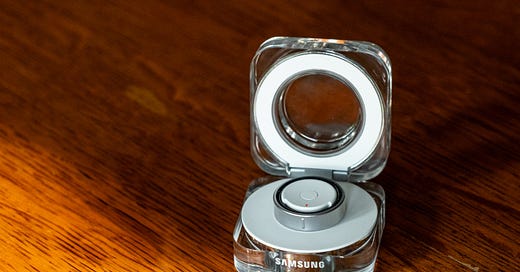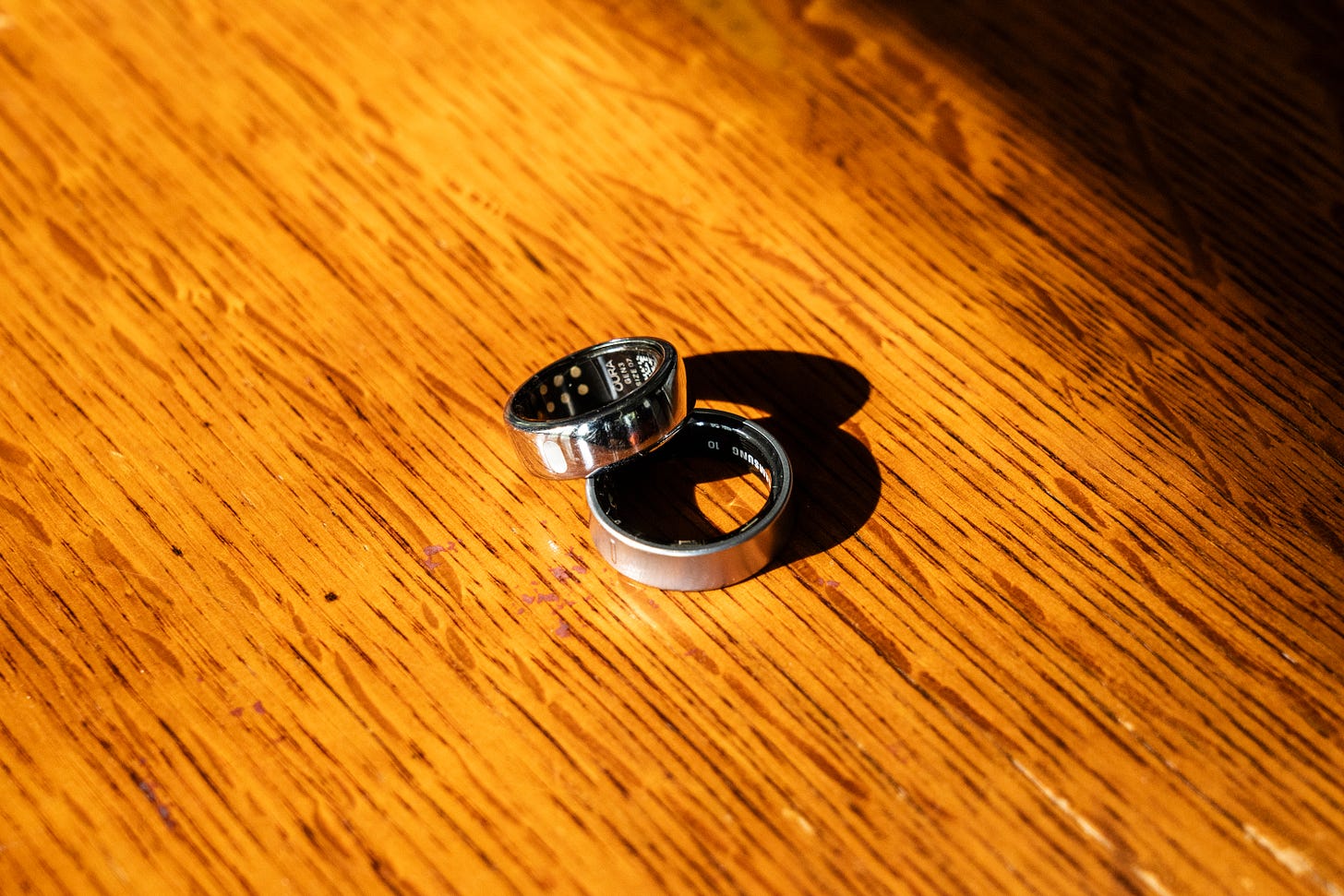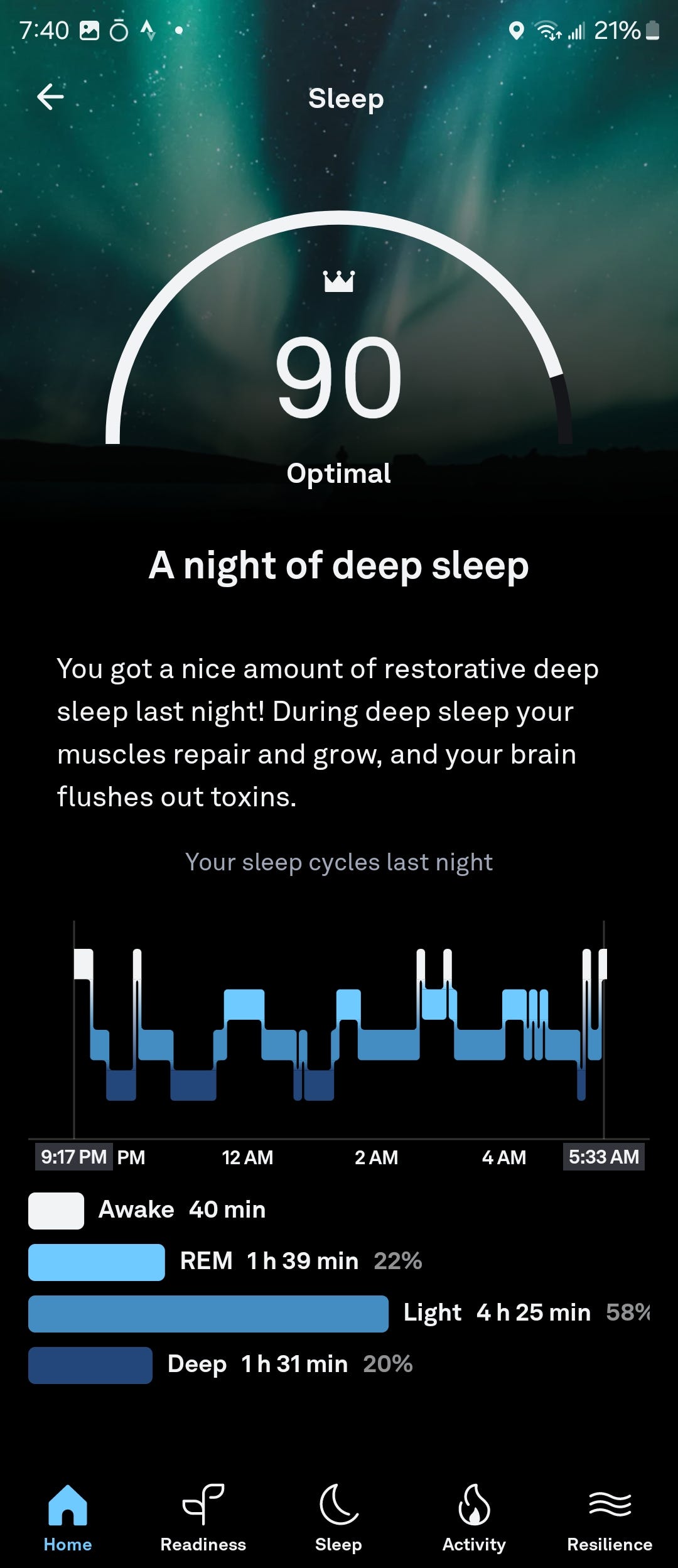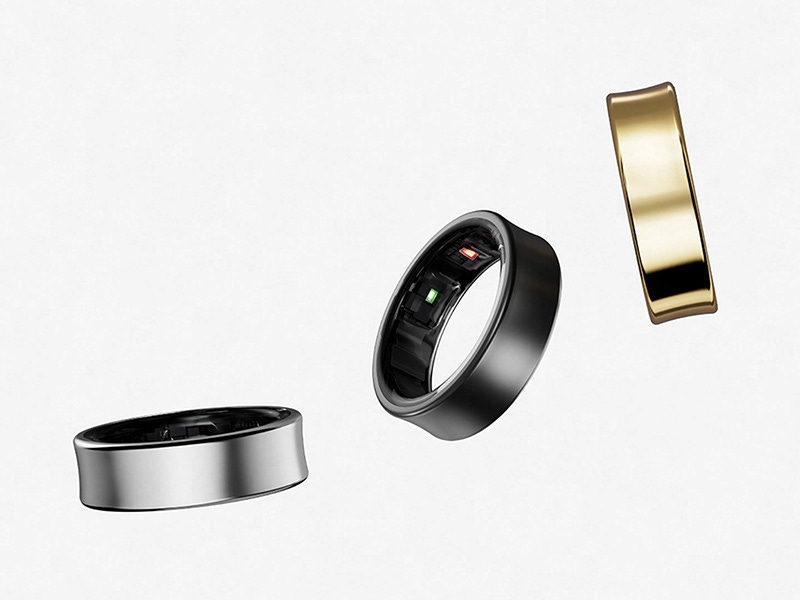Galaxy Ring vs. Oura Horizon Gen3: One month review
How the two most advanced smart rings on the market compare. (And why I won't be wearing either of them daily.)
I hate wearing rings. Having to put one on was, without a doubt, the worst part of getting married. It took me years to get used to the damn thing on my finger, pinching my hand whenever I tried to carry a bag of groceries, or threatening to go missing whenever I went kayaking.
And so, with that context in mind, you'll understand why I was perhaps not incredibly excited to sample the latest and greatest smart rings on the market: Samsung's new Galaxy Ring and the established player, the Oura, in Horizon Gen3 flavor.
But duty called. I was looking for wearable AI-powered devices for a recent feature I did at Robb Report (which you can read here), and since both of these products have received a bit of a machine learning infusion, they made the cut. I unfortunately didn't have much room in that feature to elaborate on what the in-depth experience of wearing them is like, and I thought it was a shame to not elaborate, so here we are.
My experience with smart rings actually goes way back. I wore a concept device almost exactly a decade ago in a feature for CNET. Still, where that was designed to act as a mobile, free-floating controller, these two new rings can do way, way more despite their slender profiles.
Each includes all the positioning and inertial detectors to figure out when and how you're moving, plus sensors to monitor your pulse and blood oxygen level, and more.
It's remarkable that all that, plus a battery good enough for nearly a week's usage, fits inside such a small package. But it's worth noting that both rings are far thicker than your average wedding band. Wearing one will not only have a very tangible impact on your personal style, but just figuring out sizing is a challenge.
Think you know your ring size? Think again. Both manufacturers offer low-cost ring sizing kits, and you should absolutely not buy either ring without wearing a sample size for at least 24 hours. Get your hand hot. Get your hand cold. Make sure you’re comfortable in all conditions because once you commit, there's no re-sizing here.
Even the world's most advanced jeweler would laugh you out of the store if you asked to resize one of these.
Of the two, though, the Galaxy Ring is noticeably more svelte. It's also far better looking, in my opinion. While Oura offers more color choices and even two shapes (one with a flattened section), I prefer the simple, matte titanium appearance of the Galaxy Ring to the lot. The slightly scalloped shape is interesting, too, whereas the bulbous, chrome shape of the Oura doesn't do it for me.
But that extra bulk does come with additional capabilities. Wearing the two side-by-side for a month, I didn't notice much difference when it came to things like heart rate accuracy or step tracking. Each was generally within 10 percent of the other and within that same window of my Wahoo heart rate monitor.
Sleep
Only in sleep tracking did I notice a consistent delta between the two. Both rings track a remarkable suite of metrics while you're counting sheep, enough telemetry to make a Formula One engineer jealous. Heart rate and blood oxygen levels are most important, as they can indicate issues with breathing.
Samsung adds a few extras, including body temperature. This one was particularly interesting to me. I suffer from rheumatoid arthritis, and one of the side effects is waking up drenched in sweat for no reason. Gross, I know, but I was curious to have some data to track what the heck was going on.
Samsung also adds snoring tracking, which was fascinating to me. Sleep with your phone in the room, and it'll record your snores. This, again, can be a sign of breathing issues while you sleep -- or it could be raw data to prove or refute spousal accusations of late-night disturbances.
Those additional data points from Samsung are great, but in practice, the Oura was far better at the more important element of actually figuring out when I was awake and when I was asleep. Since I travel a lot, I sometimes find myself lying in bed in some odd time zone for a little more time than usual, praying for a little help from Morpheus. Other nights, I'm out cold in 60 seconds.
I don't know how, but the Oura was far better at figuring out when I was lying stationary but still awake. I found the results the next morning to be more accurate to what I remembered and how I felt. The Galaxy Ring was far from bad in this regard, rarely off by more than 20 or 30 minutes and again providing a lot more data.
In the morning, though, Samsung’s product displayed a considerable advantage. By the time I launched the Samsung Health app after waking, all my sleep data was there and ready for viewing. By contrast, launching the Oura app brought up a progress bar that would take upwards of 15 seconds to complete. That isn't the end of the world, but it is a very long time to wait for anything in an app these days.
Once everything was in there, I found myself preferring the way Samsung presents everything, focusing on the category of data and making it easier to dig into the details. Details, for me, are everything. The Oura app presents a higher-level view by default, making you tap through a few levels to get to the data.
AI in there
And what about the AI features? They're a little hit or miss. Samsung's app provided some suggestions on improving sleep health, which could have been useful were I a normal person with a normal sleep schedule and not someone whose average week has him swinging wildly from one side of the Prime Meridian to the other.
Oura, though, has more over AI offerings, an agent called Oura Advisor. It is basically just another AI chatbot and one that's sadly only available in the iOS flavor of the app, but I actually found it surprisingly useful. It asked me what my fitness goals were, for example, and came up with a cycling training plan for me, customized for my availability. When I said some ischial bursitis was keeping me from training as much as I wanted, it recommended some stretches I could try.
Was that advice as good as a physical therapist or personal trainer? No way, but it was pretty nice for a chatbot.
That said, it has to be good because we're coming to the biggest difference between the two: Cost.
Value
On first blush, the Samsung Galaxy Ring is the more expensive of the two, with an MSRP of $399 in your choice of three colors.
You can get into an Oura for as little as $299, $349 if you want the round Horizon Gen3 as I tested. If you must have rose gold, you'll spend $549.
But sadly, you're not done with the Oura yet. You get one month free with the app, but after that, you're on the hook for $5.99 monthly.
Is it worth the extra cost? If you're an iPhone user, it's going to have to be because the Galaxy Ring is an Android-only affair right now. As an Android user, I struggled to see the monthly fee as being worthwhile. Yes, that AI personal trainer was interesting, but not so interesting that I'd pay extra for it. Oura would really have to dial up the unique and premium in-app features to make that monthly cost worthwhile for me.
Were I to buy one with my own money, it’d be the Samsung. But here’s the deal: I’m not going to buy either. After my month was up, I was happy to take off both rings. This experience has just reinforced my dislike for having stuff on my fingers. I loved having all that telemetry tracking my life, but I simply never got comfortable wearing either of these two bulky rings. And, while I didn't mind the aesthetic of the Galaxy Ring, I don’t find either attractive enough to become a part of my personal look.
So I'm going back to my one ring, which after 20 years I’ve gotten comfortable with. It may not track my steps nor tell me how loudly I'm snoring, but it comes with someone else who’s pretty good at keeping me in check there, someone who I’d much rather talk to than an AI chatbot.









Is there any usefulness during the day if wearing either of these? Or just for sleep?
Great review of both rings. One question. Does the Samsung ring track body temperature?